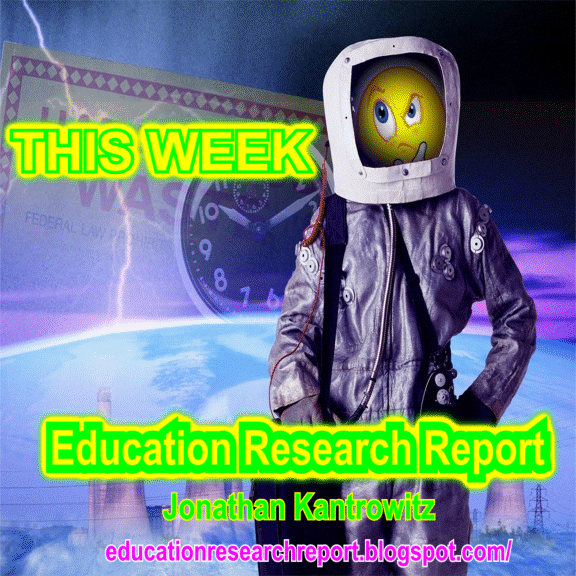Relations among phonological processing skills and mathematics in children: A meta-analysis
by Jonathan Kantrowitz / 17h
The present study presents a meta-analysis of the relations between phonological processing abilities and different mathematics subskills. Using a random-effects model with 94 studies (135 unique samples, 826 effect sizes), the present meta-analysis revealed a significant general association between phonological processing and mathematics (average r = .33, p s = .20 ∼ .54). These results suggest
Volunteer tutoring: kindergarten and first-grade students achieved significantly higher literacy
by Jonathan Kantrowitz / 17h
This study examines the impacts of two AmeriCorps programs, Minnesota Reading Corps and Wisconsin Reading Corps, where AmeriCorps volunteers provide literacy tutoring to at-risk kindergarten through third-grade (K–3) students utilizing a response-to-intervention framework. This evaluation replicates a prior randomized controlled trial evaluation of the program 4 years later and for the first time
Students with attention problems more likely to cheat
by Jonathan Kantrowitz / 2d
Many don’t get ADHD diagnosis that could lead to help High school students who have trouble paying attention in class are more likely to admit to cheating, a new study shows. Researchers found that inattention led to hyperactivity in the students, and both together contributed to higher levels of cheating. The issue is important because many students with attention problems don’t get an official
Reviews of Growth Mindset and Social Belonging Interventions for Postsecondary Student Success
by Jonathan Kantrowitz / 2d
The What Works Clearinghouse (WWC) recently reviewed the research on two interventions designed to improve postsecondary student success— Growth Mindset and Social Belonging interventions. Growth Mindset interventions aim to improve college persistence and academic achievement by encouraging students to view intelligence as a “malleable” characteristic that grows with effort and to view academic
Pandemic recovery for kids goes well beyond keeping schools open
by Jonathan Kantrowitz / 3d
Print Email App The impact virtual school had on kids goes well beyond academics, say Children’s National Hospital experts in a new JAMA Pediatrics editorial. From the beginning of the pandemic, new data shows that school closures for in-person learning led to: School disengagement Mental health challenges Unhealthy weight gain Food insecurity Immunization delay An increase in cases of new-onset
Improving reading skills through action video games
by Jonathan Kantrowitz / 4d
Decoding letters into sound is a key point in learning to read but is not enough to master it. “Reading calls upon several other essential mechanisms that we don’t necessarily think about, such as knowing how to move our eyes on the page or how to use our working memory to link words together in a coherent sentence,” points out Daphné Bavelier, a professor in the Psychology Section of the Faculty
Introducing lifestyle interventions in preschool lowers heart disease risk
by Jonathan Kantrowitz / 4d
Implementing school-based programs aimed at teaching healthy cardiovascular health habits as early as preschool can achieve lasting lifestyle changes in children, according to a review published today in the Journal of the American College of Cardiology . Previous studies have found that unhealthy lifestyle habits such as a nutritionally poor diet, sedentary lifestyle and smoking, all of which co
The importance of careful COVID-related communication from schools
by Jonathan Kantrowitz / 4d
Throughout the 2020–2021 school year, families’ access to—and desire to participate in—in-person educational experiences was highly unequal. Concerns about “school hesitancy” in light of COVID-19 have continued into the 2021–2022 school year, driven both by concerns about well-being and concerns about safety. Using a nationally representative sample of families, this study tested a messaging inte
Effects of Daily School and Care Disruptions During the COVID-19 Pandemic on Child Mental Health
by Jonathan Kantrowitz / 5d
The COVID-19 pandemic has profoundly affected American children, including disruptions to their care and school settings. Children attending in-person child care or school have contended with unpredictable closures and time in remote school, which in turn is subject to its own types of disruptions (hardware, software, and internet failures). This study investigated the frequency and consequences
School performance ratings reflect race bias
by Jonathan Kantrowitz / 5d
In large urban districts, schools enrolling more white students tend to have higher school performance ratings. This study uses an instrumental variables strategy leveraging centralized school assignment to identify the drivers of the correlation between racial make-up and ratings. Estimates from Denver and New York City suggest the relationship between widely-reported school performance ratings

